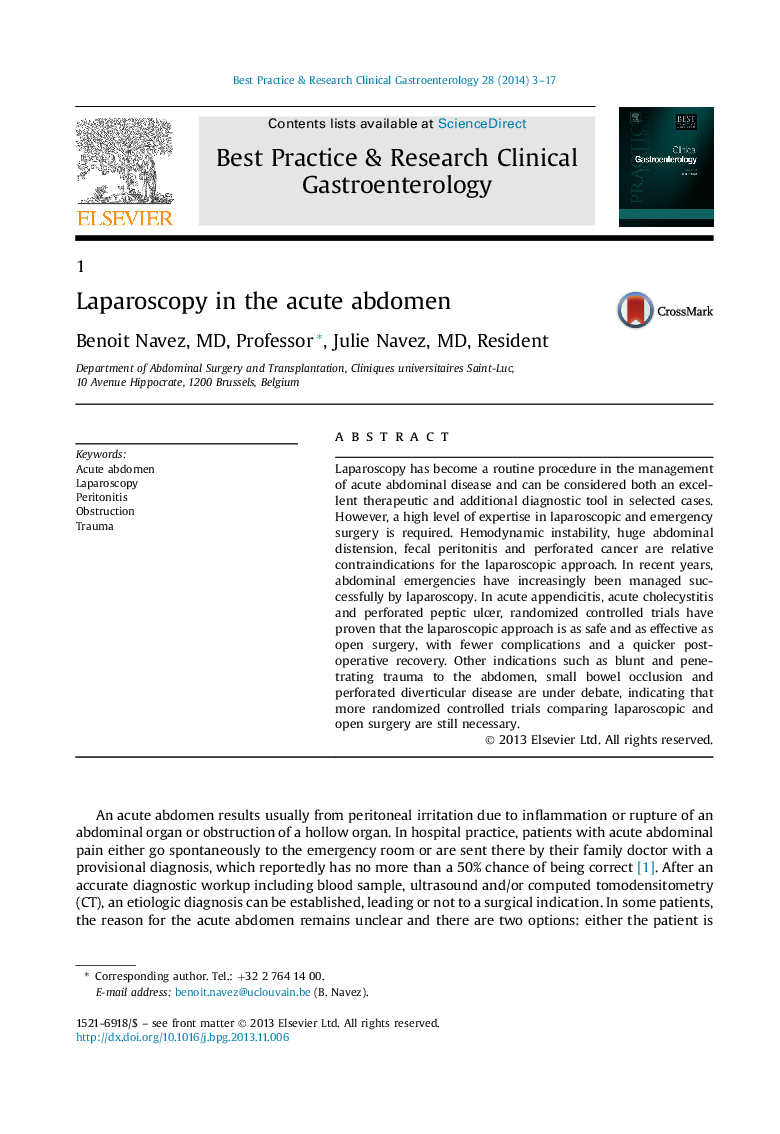| Article ID | Journal | Published Year | Pages | File Type |
|---|---|---|---|---|
| 3254442 | Best Practice & Research Clinical Gastroenterology | 2014 | 15 Pages |
Laparoscopy has become a routine procedure in the management of acute abdominal disease and can be considered both an excellent therapeutic and additional diagnostic tool in selected cases. However, a high level of expertise in laparoscopic and emergency surgery is required. Hemodynamic instability, huge abdominal distension, fecal peritonitis and perforated cancer are relative contraindications for the laparoscopic approach. In recent years, abdominal emergencies have increasingly been managed successfully by laparoscopy. In acute appendicitis, acute cholecystitis and perforated peptic ulcer, randomized controlled trials have proven that the laparoscopic approach is as safe and as effective as open surgery, with fewer complications and a quicker postoperative recovery. Other indications such as blunt and penetrating trauma to the abdomen, small bowel occlusion and perforated diverticular disease are under debate, indicating that more randomized controlled trials comparing laparoscopic and open surgery are still necessary.
